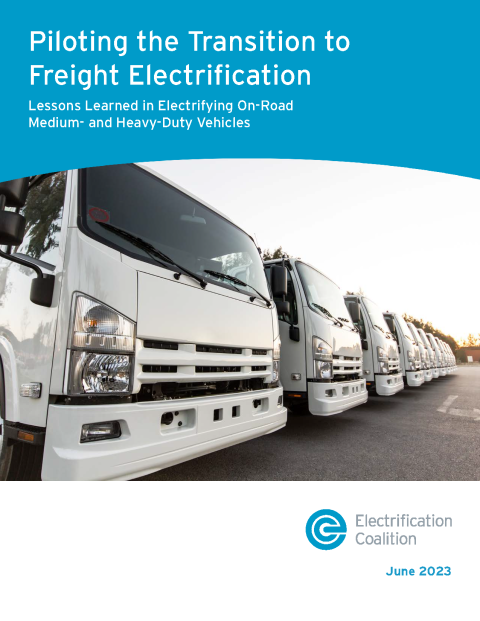Over the last few years, the Electrification Coalition (EC) supported freight electrification pilot projects of several large national and international companies (‘pilot partners’). We worked with these companies to better understand their challenges in implementing pilot electrification projects and identify best practices. Based on our findings, below is a summary of our key recommendations for fleets that are considering or actively planning to electrify in the future:
- Engage all relevant business units of the company in electrification planning and develop a project charter or memorandum of understanding.
- Select a project champion, ideally someone in a senior role with the company, to lead the pilot project.
- Engage external relevant stakeholders as early as possible. These stakeholders include electric utilities, electric vehicle (EV) charging solution providers, electric truck manufacturers, and in some instances, property owners and contracted third-party logistics companies.
- Collect internal fleet data, if not already available, and develop a methodology to utilize the up-to-date modeling for the total cost of ownership (TCO) and return on investment (ROI) to determine the economics and viability of the pilot projects.
- Map facility locations and then pair each facility with the numerous funding and financing opportunities offered by the
federal, state, and local governments and utilities for freight electrification. - Leverage the experience and expertise of third-party organizations working to scale freight electrification, such as the EC.

